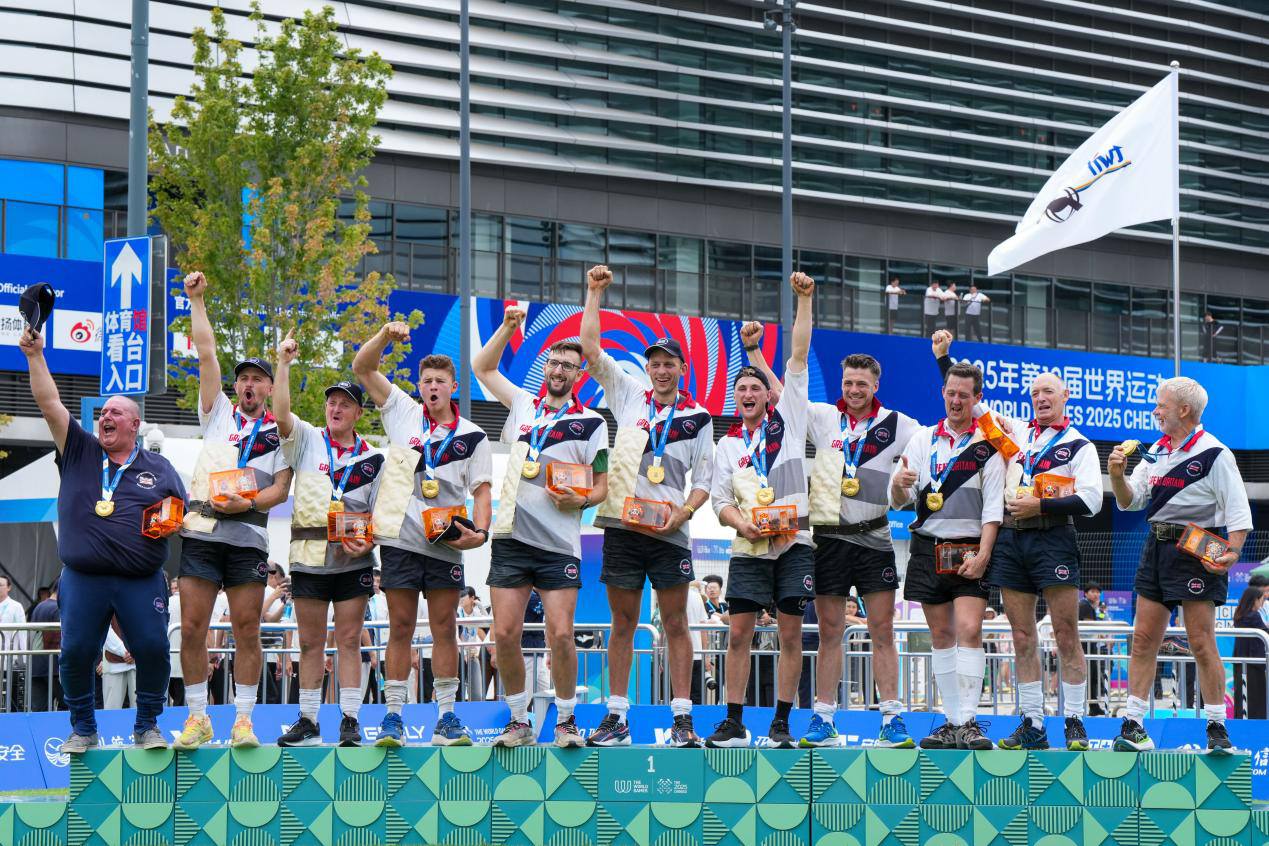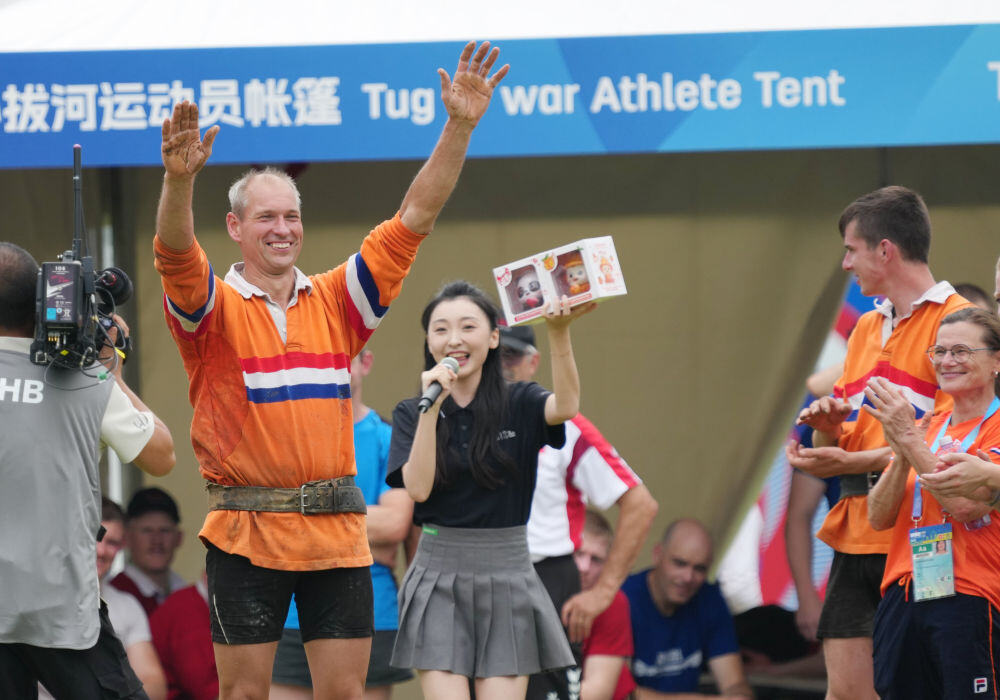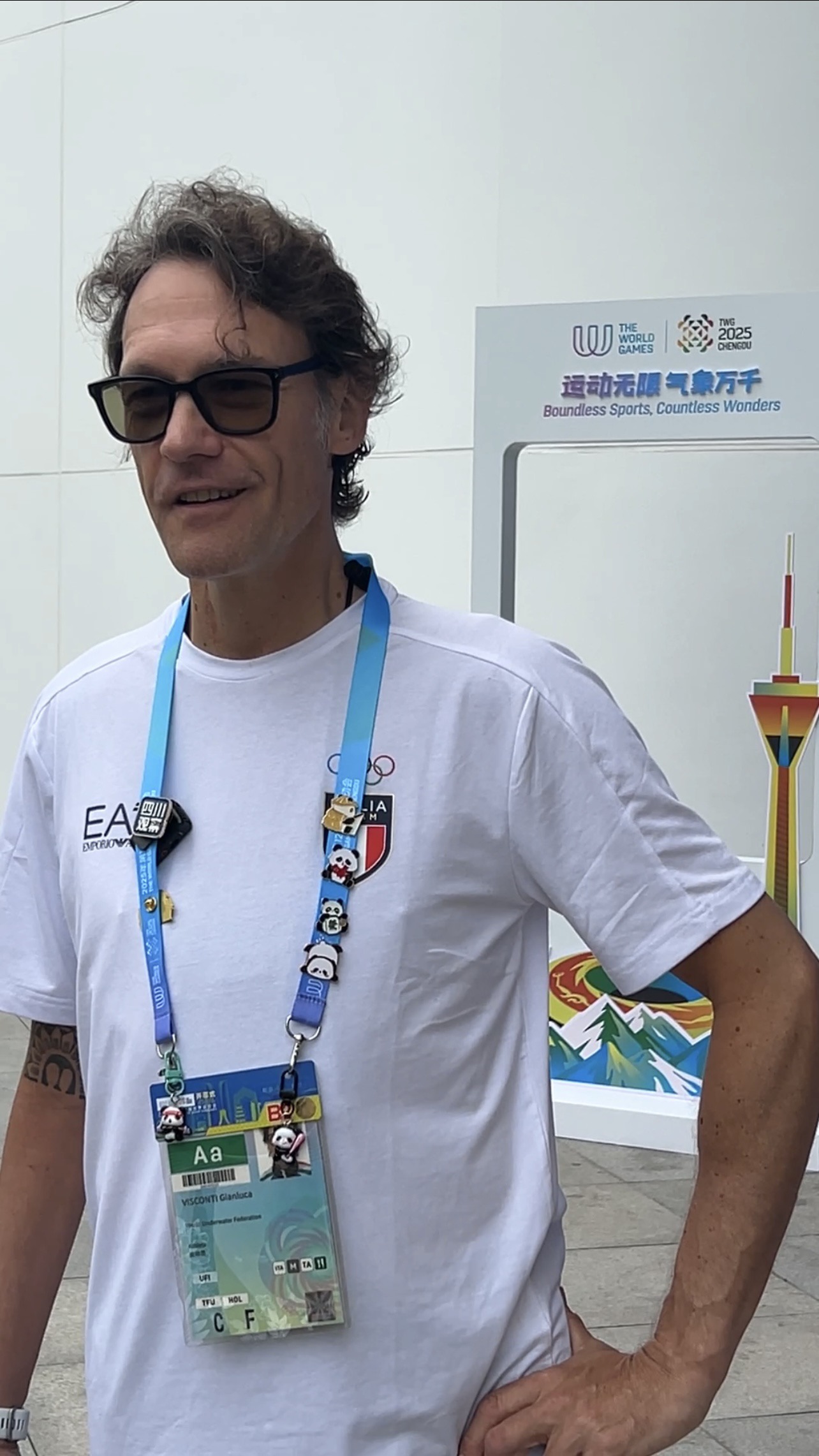Chengdu World Games: More Important Than Winning? It’s Happiness!
2025-08-15 17:32:53 by SICC
In August, the world’s attention turned to Chengdu, where the 12th World Games (hereinafter referred to as “the Games”) took place in Sichuan, China. As the competitions gathered pace, online discussions ranged widely—from the dazzling fireworks at the opening ceremony to the cultural exchanges on intangible heritage in the World Games Village; from Aruba’s flag bearer Rob Timmermans, whose striking looks went viral, to Latvian Latin dance judge Sergeis Sinkins, hailed by netizens as “A Ferrari never loses its shine with age.” Public focus gradually shifted from the fierce contests on the field to the lighthearted and quirky moments beyond it. Whether it was the determined athletes, the dedicated organizers, or the cheering spectators, everyone found joy in this grand celebration of sport.

When “Happy Birthday” Rings Out at the Games
At the opening ceremony, the One Voice Children’s Choir from the United States, the Antoniano Children’s Choir (Piccolo Coro “Mariele Ventre” dell’Antoniano) from Italy, the Hydrangea Children’s Choir from Shanghai, the Chengdu City Concert Hall Youth Choir, and the Niuniu Choir from Daliangshan in Sichuan province came together to perform “Countless Wonders” (Chinese name:《万千》)—the official theme song of the Chengdu World Games—extending a heartfelt invitation to the world.
For this special performance, 108 children traveled from across the globe, building a bridge of friendship with their voices. Founded in 1963, the Antoniano Children’s Choir is regarded as a national treasure of Italy. Chloe, a lively and talkative member for the past three years, even learned some Chinese in preparation for the event.

August 7, the day of the opening ceremony, happened to be Chloe’s 12th birthday. “It was an unforgettable day. My birthday was wonderful. They surprised me in so many ways and sang me the ‘Happy Birthday’ song.” she said.
Performing at the Games’ opening ceremony was no easy task. In the days leading up to the show, the choir leader, Francesco, carefully explained the meaning of each Chinese lyric. Chloe’s favorite line was “我们相约而来 (We come together by appointment)”, because “it’s easy to remember and beautiful to hear”.
Although rehearsals were intense, the children had a great time. It was Chloe’s first visit to Chengdu—“It’s such an interesting city,” she said. She also made a new friend: Wang Ying from the Niuniu Choir. The two, both aged 12, rehearsed, ate, and played side by side, sharing a joyful and unforgettable time together.
After the ceremony, Chloe set a new goal—to continue learning Chinese. Wang Ying, in turn, wished to visit Italy one day. “It’s a deal! See you in Italy!” Chloe said, clasping Wang Ying’s hand with eager anticipation.
On August 9, during the tug-of-war competition at the Central Plaza of Dong’an Lake Sports Park, the big screen suddenly lit up with the words “Happy Birthday” alongside the familiar tune. It was the 48th birthday of Dutch men’s tug-of-war athlete Vincent Wagenmans. Staff members called his name from the crowd and presented him with “Shubao (蜀宝)” and “Jinzai (锦仔)” the Games’ mascots.

The audience joined in singing “Happy Birthday” in English. Standing nearly 1.9 meters tall with a solid build, Vincent broke into a warm yet slightly shy smile. “I was really surprised—it was completely unexpected!” he said afterward. “Though the weather was hot, our opponents were strong, and the match was intense, this birthday surprise truly warmed my heart.”
Vincent and his wife are farmers, working their fields by day and training for tug-of-war at night. A devoted tug-of-war enthusiast for 27 years, he sees the sport not only as competition but as a way of life. “Our team includes craftsmen, carpenters, builders—people of different ages and trades training together and letting off steam. It feels like a big family, and that makes me happy.”
Also celebrating a birthday on August 9 was British tug-of-war player Ricky Kenting, who was in Chengdu to assist with event operations. That evening, during the “Rhythms of Tianfu” cultural performance at the World Games Village, the band struck up “Happy Birthday” for him. Surrounded by warm wishes, Ricky—who has 54 years of tug-of-war experience—marked his 72nd birthday. Earlier that day, the British team had claimed gold in the Men’s Outdoor Tug-of-War 640 kg category. “This is simply the happiest day,” he said, “Chengdu is the city of happiness in my heart.”
Moving Forward with Joy—One Person as a Team
San Marino—a name unfamiliar to many—is one of the world’s oldest republics, nestled in Italy’s Emilia-Romagna region. Landlocked and entirely surrounded by Italy, it is the fifth smallest country in the world, with a population of just over 30,000.
Daniele Mazza, representing his country, came alone to Chengdu to compete in the freediving events.
Facing the reality of competing without teammates, Daniele was unfazed, saying, “I know no one is here to support me, but I’m fine with that.” In the Men’s Dynamic with Fins FFS1–FFS2 final, he swam 142 meters, finishing fourth and earning warm applause from the crowd. Just 14.5 meters short of a medal, he nevertheless exceeded his predicted distance by 27 meters and was delighted. “I gave my all in the pool and set a personal best,” he said.
Competing solo didn’t dampen his Chengdu experience. Between events, he sampled the local cuisine and was full of praise. “Amazing! There are volunteers everywhere, and everyone is wonderful. It’s an honor for us athletes.” he said.
Daniele plans to train even harder in the future. Although Chengdu is far away, he hopes to return for another competition. Whether or not he travels alone again, he believes he will feel the same warmth and hospitality this city has shown him.
Inspiring Others to Live with Joy and Strength
One of the most moving moments of the opening ceremony came as the Italian delegation entered the stadium, when a para-athlete stood up from his wheelchair to wave to the stands.
That athlete was Gianluca Viconti, who competed in freediving. Speaking about the moment later, he said, “I wanted to walk because I think it’s important to convey the belief that ‘everything is possible.’ I want my actions to mean something to others, so I live each day with joy and strength, believing it’s worth sharing.”

Since an accident at the age of 17, Gianluca has worked to inspire others, showing that even with a disability, one can live happily. He believes his mission is to share his journey of pushing personal limits and pass on that belief—and he has done so, with competitive sport being just one of many possibilities.
Para freediving was included as an official event for the first time at this year’s Games, one of two new para disciplines. The sport has two categories—dynamic with fins and dynamic without fins—divided into men’s and women’s events according to classification. Athletes aim to swim as far as possible underwater on a single breath, a feat that tests endurance, mental resilience, and the harmony between body and mind.
On August 11, his second day of competition, Gianluca swam 118 meters in the Men’s Dynamic with Fins FFS1–FFS2 final—16 meters beyond his predicted distance—and was pleased with his performance.
Gianluca has only been training in freediving for two years. One day, while taking his daughter to a training session, he got in the water himself. His coach noticed and said, “Hey! You have talent. Why not give it a try?” And so, Gianluca began his freediving journey. “I’ve been training hard ever since, inspired by other athletes. Last year, I won a silver medal at the World Championships in dynamic with fins. That’s how I earned the chance to be here.”
Although he hasn’t had time to fully explore Chengdu, he has felt the warmth of the city. “People are very friendly, always saying ‘welcome’ with sincerity. I want to thank all the volunteers and everyone who contributed to the Games with positive energy. I feel at home here.”
While he didn’t medal, Gianluca broke his own limits. “The atmosphere here is amazing. I think it’s important to send the message to the world that ‘sport brings us together.’”
His athlete credential was adorned with numerous panda pins. After the competition, he said he planned to visit the Chengdu Research Base of Giant Panda Breeding to see the city’s famously adorable pandas up close. Strolling through Chengdu, he looked forward to savoring the joy of his post-competition days.
An ancient Chinese saying goes, “All who have blood and breath are born with a competitive spirit”, but it also says, “Isn’t it a joy to have friends come from afar?” Competition results matter, and the spirit of sport keeps people striving for “faster, higher, stronger.” Above all, happiness is the true essence. The joy that sport brings is genuine — reflected in smiles and warm gestures, inspiring people from different nations to cross mountains and seas to meet, help one another, and build friendships.
As IOC President Kirsty Coventry expressed in her video message at the opening ceremony, she hopes all athletes will remember the joy of sport and savor their moment. “Relations between nations depend on closeness between peoples, and closeness between peoples depends on hearts in harmony.” In Chengdu, people of different colors and languages have gathered from all corners of the globe—happy because of sport, embracing because of happiness—and have gained friendships, warmth, and inspiration far more precious than victory.
By Yvonne, Evangeline (intern)

